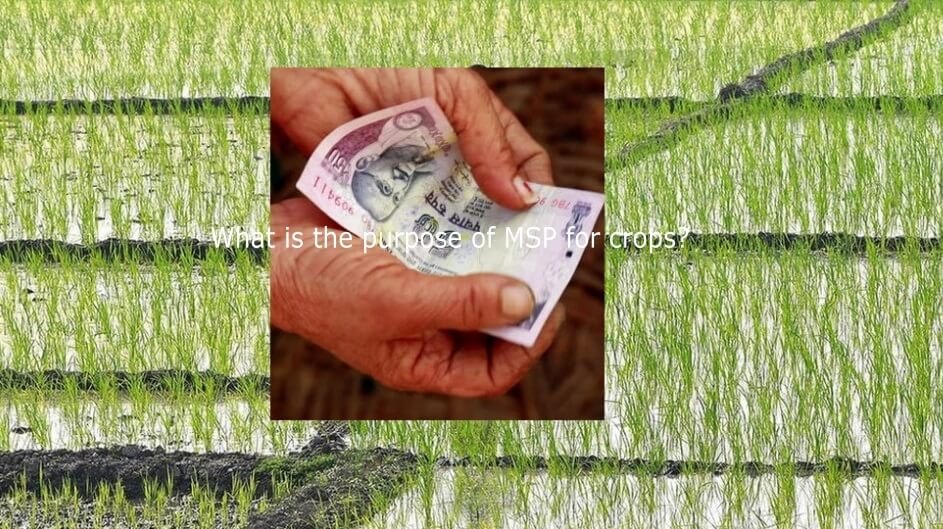The latest Cabinet decision to raise the MSP for the 2021-22 Kharif season crops raises question What is the purpose of MSP for crops? and confirms that the announcement of minimum support prices (MSP) for various crops seems to have become a ritualistic activity over the years.
The particular intent and intended results of the price increases are unclear. The goal of MSP should be to indicate to farmers that they must make a decision on which crop to cultivate, to guarantee a minimum price, and to stimulate a move from one crop to another if necessary.
Also Read: Union Govt announced a rise MSP of key kharif crops by 4-5%
Agriculture in India is fraught with risks. Crop cultivation is a seasonal and regional activity. The output market is often volatile. Produce prices tend to plummet throughout the harvesting season. MSP guarantees a minimum price, allowing farmers to recover their costs while still earning a reasonable return on investment.
The expert believes that MSP should serve as a sovereign promise from the government to farmers that they would not incur losses if prices fall below the preset support price. MSP loses its credibility if this is not the case.
Importantly, MSP is an options contract in which the government is the seller of options and the farmer is the buyer of options. On the end, the government is required to buy from farmers if the price falls below MSP; but, the farmer is not required to sell to the government if the price is higher than MSP and is free to sell in the open market.
Skewed Implementation
The policy’s implementation is biassed. Rice and wheat receive all of the attention, while other crops, such as cereal grains, oilseeds, and pulses, frequently suffer. In a production-centric strategy, MSP is bound to fail unless it is supported by a powerful statewide proactive procurement system.
The emphasis on rice and wheat has brought its own set of economic and environmental concerns. We can no longer overlook the ecological crisis that is brewing as a result of grain mono-cropping in the country’s breadbasket and open-ended procurement.
MSP must consider both domestic and global market conditions. Higher MSP is no assurance that growers will gain because other policies – such as export commerce, customs tariffs, and consumption – will counteract the benefits. Pulses are an excellent example. We try to generate more yet do nothing to increase consumption.
The situation with oilseeds is sad. Growers could benefit greatly because this crop is in chronic short supply. Nonetheless, oilseed prices have frequently ruled below the necessary MSP, distressing growers. The unimaginative trade and tariff strategy for vegetable oils clearly defeats the aim of increased MSP.
Also Read: Govt buys Kharif-2020-21 Paddy grains at Minimum Support Price
It is past time to change the silo mentality that exists across various ministries – Agriculture, Food, Consumer Affairs, and Commerce – with a holistic strategy that considers the agriculture business as a whole, including production, consumption, and trade.
(Author’s opinions are his own. Please send comments to agrinewsin@gmail.com)


















Add Comment